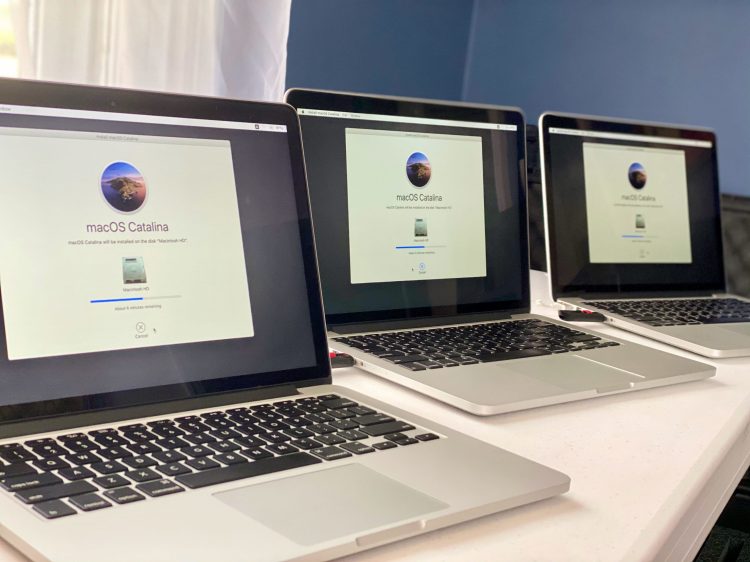Disclaimer: One of my inside jokes is that I am absolutely terrible at self-promotion. Even worse, self-promotion is particularly important in my industry. Still, I hate it. I’ve always preferred a “behind the scenes” role that helps those around me shine. So, here goes nothing!
When I started my term on the Board of Directors for Girls For A Change (GFAC) months ago, we were looking ahead to an ambitious 2020 and beyond.
After supporting the talented Ayana Zaire Cotton with her “Intro to Coding for Community” course for this year’s Girl Ambassador Program participants (high school students) in person for almost two months, we were faced with social distancing guidelines and closures across Virginia. With limited options, we suspended the program while quickly working to adapt the in-person course to 100% virtual courses for the foreseeable future.
Since I was a kid, learning and using new technology has been both a benefit and a curse of sorts. My father, who encouraged and tinkered along with me, got me started with building computers for ourselves and others. On the other hand, word of mouth that I was “good with computers” meant regular calls and visits for tech support for broken or misbehaving technology by friends and family from my teenage years onward.

However, this opportunity proved to be a way for me to contribute far beyond what I imagined only months ago that I’d be doing this spring.
At past jobs, I often filled in as an unofficial IT person—or ERT, an “Emergency Response Technician” as I called myself. My colleagues there would remember me setting up 3, 5, 8, 15 laptops at a time from scratch before bringing on new staff during times of rapid expansion. Well, it was time to do it again.
While Ayana adapted her coursework, and [GFAC CEO] Angela and GFAC coordinator Na’Kera Richardson worked with informing and preparing the parents and participants, I focused on the hardware our students would need to be set up for success.
As our donated MacBooks all had different operating system versions, software settings, and permissions issues, I knew we needed a fresh start. We needed to make this transition as frictionless as possible, and computers that continually prompted for administrator credentials would only complicate matters once they left our hands.

I picked up 13 of the laptops GFAC had in its inventory and brought them home. After saving the work our participants had done on-site over March, I erased each computer. I set them up with the latest operating system, software, and settings we needed for the girls to complete this year’s Girl Ambassador Program coursework. I even created a web page with helpful setup instructions, links, and tips; it’s set as the browser’s default homepage for easy access, too.
I was also mindful of our student’s digital privacy and security, especially outside our more-controlled GFAC network and supervision. I set each laptop’s privacy settings as I’d set for myself—only enabling what’s necessary and locking down the rest. I researched and integrated a management tool typically used by large companies that track, audit, and manage extensive inventories of devices. If needed, this tool would allow us to monitor, manage, lock, and remotely control each device we lend out.
With Angela’s help, and with gloves and masked donned, we thoroughly cleaned each laptop and charger. We packaged them with new protective sleeves and paired them with tote bags Microsoft had given us.
During the two pickup days, I spoke to each parent and gave them a quick rundown of what we did and offered pointers on how to keep their girls safe online. (Pro tip: always keep a laptop closed when it’s not in use; its camera and microphone are generally disabled or unusable when closed.)
After 70-ish volunteered hours behind me over a few weeks, we resumed our Intro to Coding for Community course over a video session, including remote assistance and screen sharing. Better yet, we’re only just getting started, and I can’t wait to see where these students go from here.
In times of crisis, we remind ourselves of Fred “Mister” Rogers’ helpful childhood story when he’d see frightening events unfold in the news.
“My mother would say to me, ‘Look for the helpers. You will always find people who are helping.’ To this day, especially in times of disaster, I remember my mother’s words, and I am always comforted by realizing that there are still so many helpers — so many caring people in this world.”
Fred “Mister” Rogers
In this new future of new normals, uncertainty, and adaptation, we’re presented with unprecedented challenges. In life, we can let fear, sadness, loss, frustration, and anger get the best of us and sap our energy and determination, or we can use it as fuel to help those around us.
Whether we’re helping the community make face masks, supporting our healthcare and service industries, lifting our educators and families who suddenly became homeschoolers, or building raised garden beds for renewable sources of produce—just to name a few—we can help those around us weather this shifting storm.
I chose to be a helper. I’ll never stop wanting to be one.









